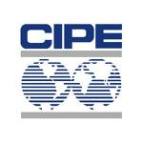2008 | 2007 | 2006 | 2005 | 2004 & Earlier | Back to Archives
CIPE Releases Case Study: The Public Governance System: Building Dream Cities in the Philippines
 CIPE Releases Case Study: The Public Governance System: Building Dream Cities in the Philippines.
CIPE Releases Case Study: The Public Governance System: Building Dream Cities in the Philippines.
Thirty cities and two provinces in the Philippines have participated in a rigorous public governance certification process that has improved city services, attracted investment, helped balance budgets, and raised citizens’ quality of life. The governance process engages citizens and government officials in a cooperative effort to identify areas in need of reform and work together to achieve results. For more reform case studies on CIPE programs, read Strategies for Policy Reform here.
KPAC Press Release
 The "Kyrgyz Parliamentarians Against Corruption" (KPAC) in collaboration with the OSCE Center in Bishkek has successfully launched the project "Two times "yes" to civil rights, no to corruption!"
The "Kyrgyz Parliamentarians Against Corruption" (KPAC) in collaboration with the OSCE Center in Bishkek has successfully launched the project "Two times "yes" to civil rights, no to corruption!"
The main objective behind the project is to inform citizens of their rights and law enforcement representatives of their duties. For more information visit our Central Asia page.
TI calls on leading oil and gas companies to increase revenue transparency: New report shows companies should provide greater accountability
A majority of leading oil and gas companies are far from transparent when it comes to the payments they make to resource-rich countries, leaving the door open to corruption and hampering efforts to fight poverty, according to a report published today by Transparency International (TI). On Monday, April 28th,, 2008, Transparency International launched the ‘2008 Report on Revenue Transparency of Oil and Gas Companies’ in London, UK. To see the full report and other related information visit the Promoting Revenue Transparency Project Website here.
![]() Opportunities, Stolen Asset Recovery (StAR) Initiative: and Action Plan Challenges
Opportunities, Stolen Asset Recovery (StAR) Initiative: and Action Plan Challenges
The World Bank, in partnership with the United Nations Office of Drugs and Crime (UNODC), launched an initiative in September 2007 to help developing countries recover assets stolen by corrupt leaders, help invest them in effective development programs and combat safe havens internationally. Most recently, they have published an Action Plan which represents the feedback received from consultations with developed and developing countries, as well as lessons from the experience of Nigeria, Peru, and the Philippines. The Action Plan is available at http://www.unodc.org/pdf/StarReport.pdf
Workshop on Access to Information, Media and Accountability in Tanzania
Since the onset of multi-party government in Tanzania, the media and information environment has been slowly shifting – the role of the media is increasingly seen as a watchdog on government institutions and a voice for popular concerns. However, much of the legal basis in support of open information is still rooted in legislation passed during the 1970s. The overarching objective of the workshop is to strengthen good governance capacity in Tanzania through an improved access to information environment and strong media law. For more information on the workshop click here.
New WBI Publication: Budgeting and Budgetary Institutions edited by Anwar Shah
Budgetary institutions and the budgetary process fulfill several important functions. These include setting priorities in the allocation of public resource; planning to achieve policy goals; establishing finance control over inputs to ensure compliance with rules; managing operations with fiscal prudence, efficiency, and integrity; and ensuring accountability to taxpayers. This volume provides a comprehensive guide to reforming budgeting and budgetary institutions. The book is divided into two parts. The first part provides a primer on budgeting and budgetary institutions while the second part of this volume presents an overview of issues involved in prioritizing and sequencing public expenditure management in Africa and in postconflict countries. To obtain a copy of this publication click here.
11/3/2011